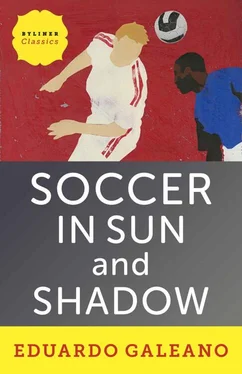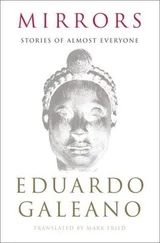Argentine journalists frequently applaud the wiles of Carlos Bilardo because he knows how to deploy them carefully and effectively. They say that when Bilardo was a player he would prick his opponents with a pin and put on an innocent face. And when he was manager of the Argentine national team, he managed to send a canteen filled with emetic water to Branco, a thirsty Brazilian player, during the toughest match of the 1990 World Cup.
Uruguayan journalists like to call brazen crime a “strong-legged play,” and more than one has celebrated the effectiveness of the “softening kick” to intimidate opposing players in international contests. That kick must be given in the first minutes of the match. Later on, you run the risk of being sent off. In Uruguayan soccer, violence is the daughter of decadence. Long ago, “Charrua’s claw” was a term for bravery, not for a vicious kick.
In the 1950 World Cup, during the famous final in Maracanã, Brazil committed twice as many fouls as Uruguay. In the 199 °Cup, when the manager Oscar Tabárez managed to get the Uruguayan team to go back to playing cleanly, several local commentators took pleasure in affirming that it did not achieve much. There are many fans and officials, too, who prefer winning without honor to losing nobly.
Uruguayan forward “Pepe” Sasía said: “Throw dirt in the eyes of the goalkeeper? Managers don’t like it when you get caught.”
Argentine fans heap praise on the goal that Maradona scored with his hand in the ’86 World Cup, because the referee didn’t see it . In the qualifiers for the World Cup in 1990, Chile’s keeper Roberto Rojas pretended to be wounded by cutting himself on the forehead, but he got caught. Chile’s fans, who adored Rojas and called him “The Condor,” suddenly turned him into the villain of the picture, because his ploy didn’t work .
In professional soccer, like everything else, the crime does not matter as long as the alibi is good. “Culture” means cultivation. What does the culture of power cultivate in us? What sad harvests could come of a power that bestows impunity on the crimes of the military and the graft of politicians and converts them into triumphs?
The writer Albert Camus, who once was a goalkeeper in Algeria, was not referring to the professional game when he said: “Everything I know about morals, I owe to soccer.”
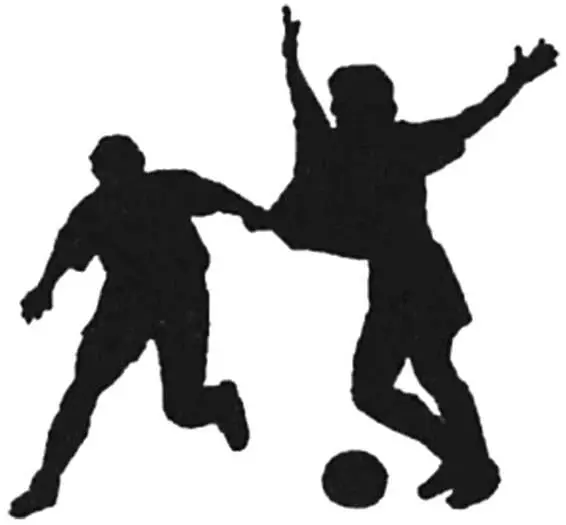
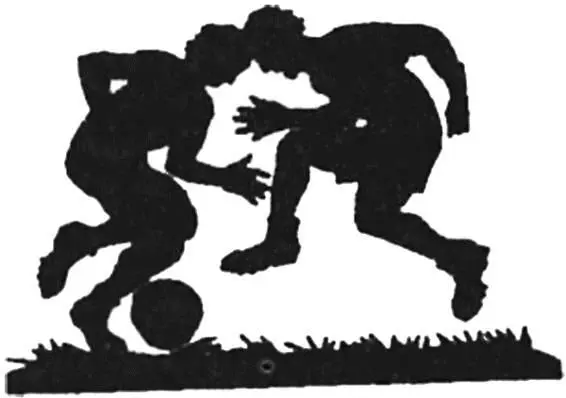
In 1989 in Buenos Aires, a match between Argentinos Juniors and Racing ended in a draw. The rules called for a penalty shootout.
The crowd was on its feet, biting its nails, for the first shots at twelve paces. The fans cheered a goal by Racing. Then came a goal by Argentinos Juniors and the fans from the other side cheered. There was an ovation when the Racing keeper leaped against one post and sent the ball awry. Another ovation praised the Argentinos keeper who did not allow himself to be seduced by the expression on the striker’s face and waited for the ball in the center of the goal.
When the tenth penalty was kicked, there was another round of applause. A few fans left the stadium after the twentieth. When the thirtieth penalty came around, the few who remained responded with yawns. Kicks came and went and the match remained tied.
After forty-four penalty kicks, the match ended. It was a world record for penalties. In the stadium no one was left to celebrate, and no one even knew which side won.
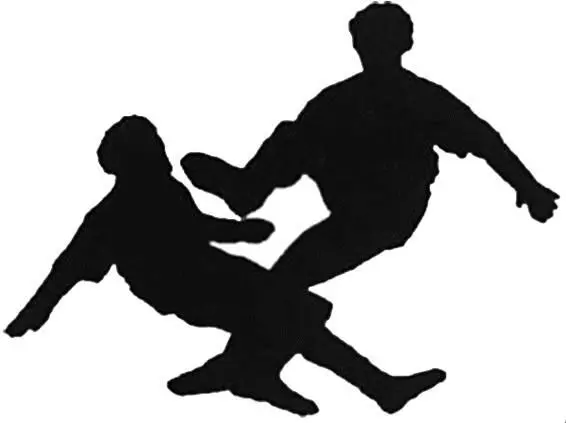
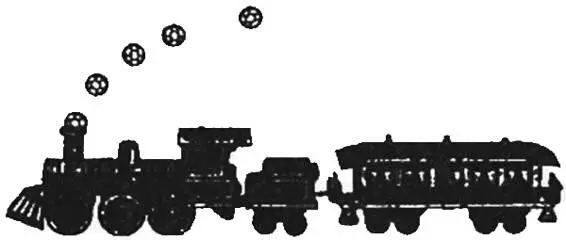
Nelson Mandela was free, after spending twenty-seven years in prison for being black and proud in South Africa. In Colombia the left’s presidential candidate Bernardo Jaramillo lay dying and from a helicopter the police were shooting drug trafficker Rodríguez Gacha, one of the ten richest men in the world. Chile’s badly wounded democracy was recuperating, but General Pinochet, at the head of the military, was still keeping an eye on the politicians and reining in their every step. Alberto Fujimori, riding a tractor, was beating Mario Vargas Llosa in the Peruvian elections. In Nicaragua, the Sandinistas were losing that country’s elections, defeated by the exhaustion wrought by ten years of war against invaders armed and trained by the United States, while the United States was beginning a new occupation of Panama following the success of its twenty-first invasion of that country.
In Poland labor leader Lech Walesa, a man of daily mass, was exiting jail and entering government. In Moscow a crowd was lining up at McDonald’s. The Berlin Wall was being sold off in pieces, as the unification of the two Germanys and the disintegration of Yugoslavia began. A popular insurrection was putting an end to the Ceausescu regime in Romania, and the veteran dictator, who liked to call himself the “Blue Danube of Socialism,” was being executed. In all of Eastern Europe, old bureaucrats were turning into new entrepreneurs and cranes were dragging off statues of Marx, who had no way of saying, “I’m innocent.” Well-informed sources in Miami were announcing the imminent fall of Fidel Castro, it was only a matter of hours. Up in heaven, terrestrial machines were visiting Venus and spying on its secrets, while here on earth, in Italy, the fourteenth World Cup got under way.
Fourteen teams from Europe and six from the Americas took part, plus Egypt, South Korea, the United Arab Emirates, and Cameroon, which astonished the world by defeating the Argentine side in the first match and then playing head to head with England. Roger Milla, a forty-year-old veteran, was first drum in this African orchestra.
Maradona, with one foot swelled up like a pumpkin, did the best he could to lead his team. You could barely hear the tango. After losing to Cameroon, Argentina drew with Romania and Italy and was about to lose to Brazil. The Brazilians dominated the entire match, until Maradona, playing on one leg, evaded three markers at midfield and set up Caniggia, who scored before you could even exhale.
Argentina faced Germany in the final, just as in the previous Cup, but this time Germany won 1–0 thanks to an invisible foul and Beckenbauer’s wise coaching.
Italy took third place, England fourth. Schillaci of Italy led the list of scorers with six, followed by Skuharavy of Czechoslovakia with five. This championship, boring soccer without a drop of audacity or beauty, had the lowest average scores in World Cup history.
It happened at the World Cup in 1990. Colombia was playing better than Germany, but was losing the match 1–0.
Then, in the final minute, the ball reached midfield in search of a head with an electrified afro: Valderrama got the ball from behind, he turned, shook off three Germans he had no need of and passed to Rincón. The ball traveled from Rincón to Valderrama, Valderrama to Rincón, yours and mine, mine and yours, touch after touch, until Rincón loped forward several paces like a giraffe and faced Illgner, the German keeper, alone. Illgner covered the goal completely. So Rincón didn’t kick the ball, he caressed her. And she slid softly between the goalkeeper’s legs and scored.
Читать дальше
